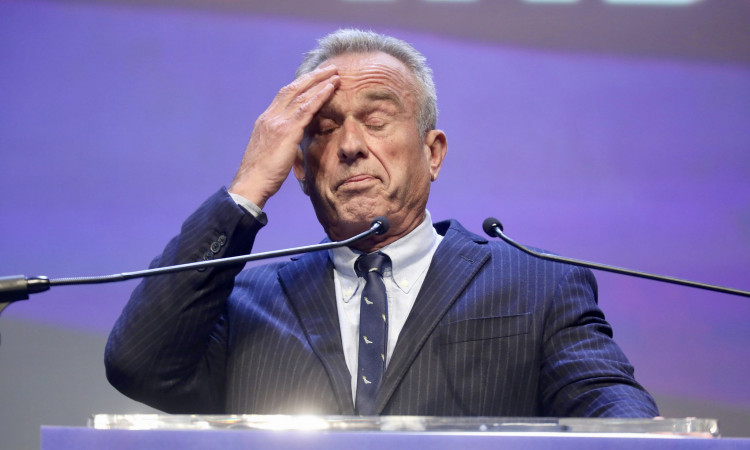The Biden administration is facing mounting criticism after several studies cited in its flagship "Make America Healthy Again" (MAHA) report were found to be nonexistent. The White House has acknowledged the mistakes, attributing them to "formatting issues," and issued an updated version of the document on Thursday.
Health and Human Services Secretary Robert F. Kennedy Jr., who leads the MAHA Commission, released the original report on May 22. The document, intended to address the chronic disease epidemic among U.S. children, contained over 500 citations, including multiple references to top-tier medical journals such as JAMA Pediatrics and the American Academy of Pediatrics. But at least four of the cited studies were confirmed by researchers and publishers to not exist.
Columbia University epidemiologist Dr. Katherine Keyes told ABC News, "I was surprised to see what seems to be an error in the citation of my work in the report." She clarified that while she has published on adolescent mental health, she ”did not write that paper," which was falsely attributed to her and listed under a broken DOI link in JAMA Pediatrics.
Another researcher, Noah Kreski of Columbia University, said the paper cited under his name "doesn't appear to be a study that exists at all." Similarly, Dr. Guohua Li, also of Columbia, called the citation "totally fabricated" and said he had never collaborated with Kreski.
The original report included a claim that a 2008 Pediatrics study criticized ADHD drug advertisements. The American Academy of Pediatrics confirmed that no such paper appeared in its archives. In the updated version, the section was altered to state the ads "potentially" misled parents, and the fake citation was replaced with other sources, including a New York Times article.
White House Press Secretary Karoline Leavitt said Thursday that the citation mistakes did not "negate the substance of the report" and that "the report will be updated." She added that the administration retains "complete confidence in Secretary Kennedy and his team."
Calley Means, a senior adviser to Kennedy and a key coordinator of the report, defended the document: the "underlying data and conclusions are correct" and that "any formatting errors have been corrected."
An HHS spokesperson stated the updated MAHA report remains "a historic and transformative assessment," while calling on critics to focus on its core findings.
However, the controversy has fueled broader concerns about the integrity of the administration's public health strategy. The Democratic National Committee released a statement Thursday calling the report "rife with misinformation" and accused Kennedy of "justifying its policy priorities with studies and sources that do not exist."
In response to press inquiries about the production of the report, Leavitt declined to comment on whether artificial intelligence tools had been used, referring those questions back to HHS.
Since taking office, Kennedy has ordered the NIH to investigate the causes of autism, repeating a long-debunked theory linking the condition to vaccines. The MAHA report echoes similar rhetoric, criticizing the "over-medicalization" of American youth and accusing pharmaceutical interests of "corporate capture" over scientific research.
Despite efforts to revise the report, several DOIs listed in the initial version still result in dead links. Some researchers whose names appeared in the original text, including Baylor College of Medicine's Dr. Harold Farber and VCU's Dr. Robert Findling, told AFP they had never authored the cited papers and had not collaborated with the listed co-authors.
JAMA Network spokesperson Jim Michalski confirmed, "It was not published in JAMA Pediatrics or in any JAMA Network journal."






